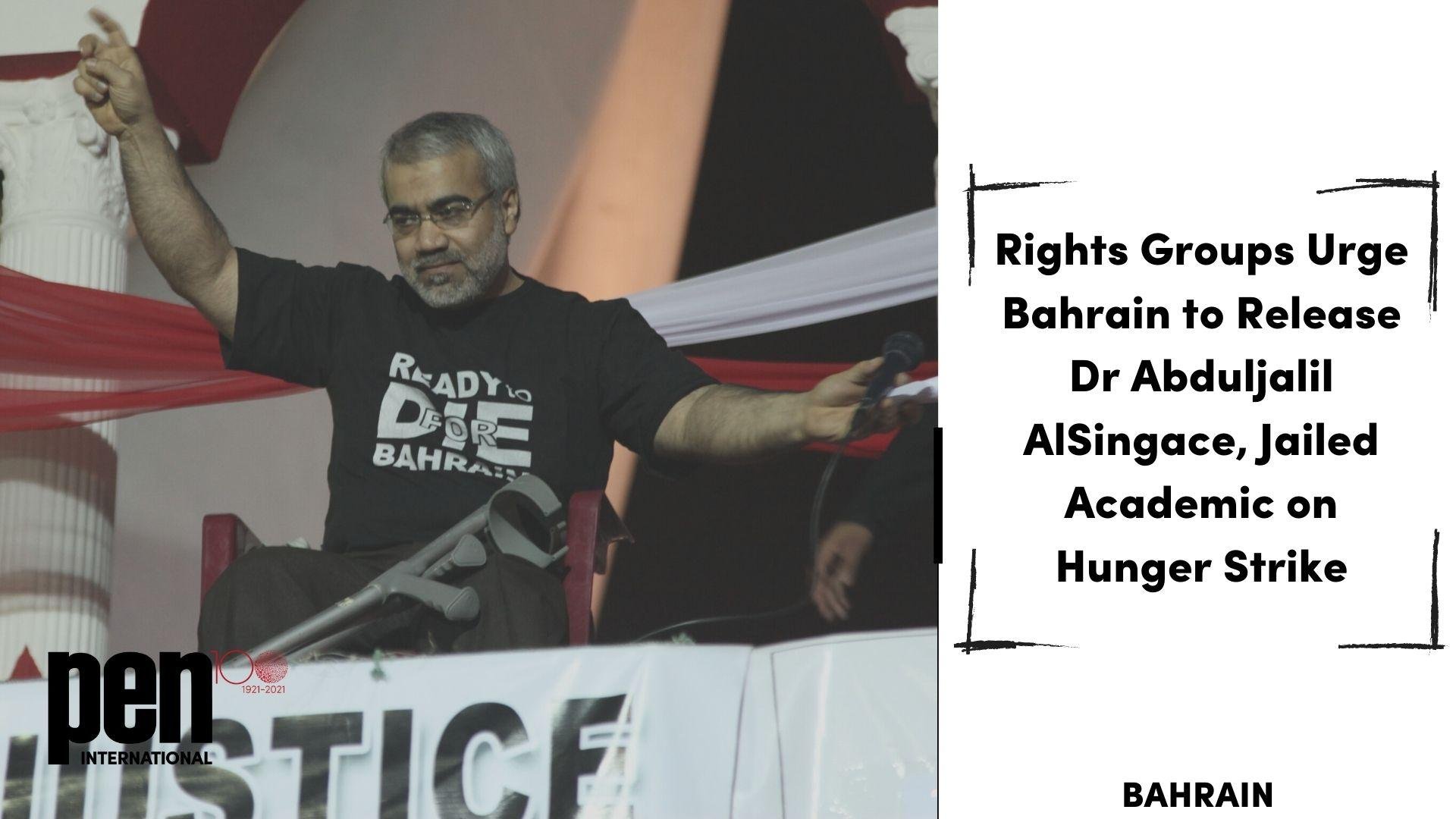Bahrain: Rights Groups Urge Bahrain to Release Dr Abduljalil Al Singace, Jailed Academic on Hunger Strike
Dr Abduljalil AlSingace, an imprisoned opposition activist and human rights defender. (Private)
14 leading human rights groups including Amnesty International, Scholars at Risk and the Bahrain Institute for Rights and Democracy have issued a statement calling for the release of jailed Bahraini academic, blogger and human rights defender Dr Abduljalil AlSingace, who has been on hunger strike since 8 July 2021 to protest ill treatment and demand the return of a book he wrote in prison which was confiscated by prison authorities.
The letter states that the confiscation of Dr AlSingace’s book, upon which he dedicated at least four years of research, “is an unjust punishment” adding that “authorities must ensure the protection of his rights, including the return of his intellectual property.” The signatories go on to call “for Dr AlSingace’s immediate and unconditional release and for his work to be immediately given to his family.” Dr ASingace’s book, a study of Bahraini Arabic dialects, contains no political content but authorities have refused to return it, despite promises.
The letter also highlights the failure of Bahrain’s Ombudsman of the Ministry of Interior (the Ombudsman) to adequately investigate the seizure of Dr AlSingace’s research and ill treatment committed against him. They noted that the Ombudsman “cleared the prison officials from any wrongdoing” without interviewing Dr AlSingace and accused him of “smuggling” his own work. The Ombudsman and other Bahraini human rights oversight bodies, which receive training funded by the UK government, have been widely condemned for their failure to hold perpetrators accountable, including by the United Nations.
Dr AlSingace is serving a life sentence at Bahrain’s notorious Jau Prison over his role in Bahrain’s pro-democracy uprising during the 2011 Arab Spring. He is a former lecturer in the Mechanical Engineering department at the University of Bahrain, with PhD from the University of Manchester Institute of Science and Technology, now the University of Manchester. In 2007, he was a Draper Hills Fellow at Stanford University’s Center on Democracy Development and the Rule of Law.
Dr AlSingace has several chronic illnesses, including post-polio syndrome and a musculoskeletal condition, requiring the use of crutches or a wheelchair, making his hunger strike particularly detrimental to his health. Since starting his hunger strike, he has lost at least 10kg and been transferred to an external hospital for monitoring. During his time in prison, he has repeatedly complained of medical negligence by prison authorities, a common form of punishment against political prisoners in Bahrain.
Following his arrest, Dr AlSingace was subjected to brutal torture following his arrest, including being repeatedly beaten, “sexually molested”, “forced to lick the shoes” of prison guards and threatened with the rape of his wife and daughter, amongst other violations, according to the Bahrain Independent Commission of Inquiry. The international community has called repeatedly for his release including the United Nations Special Rapporteurs on Human Rights Defenders, Human Rights Watch, Amnesty International, the Bahrain Institute for Rights and Democracy and American, British and European legislators.
Sayed Ahmed Alwadaei, Director of the Bahrain Institute for Rights and Democracy (BIRD), commented: “The confiscation of Dr AlSingace’s research is yet another cynical attempt to humiliate a brave leader who refuses to be cowed in the face of abuse. He has now spent a decade in prison for his peaceful resistance to Bahrain’s dictatorship and it is time for Bahraini authorities to end this petty persecution, return Dr AlSingace’s book and order his immediate and unconditional release.”
Husain Abdulla, Executive Director at Americans for Democracy and Human Rights in Bahrain (ADHRB), commented: “Bahrain's allies in the US and UK continue to remain silent in the face of Dr AlSingace’s unlawful imprisonment and the many abuses he has been subjected to. This glaring double standard exposes how shallow their professed commitment to human rights really is.”

